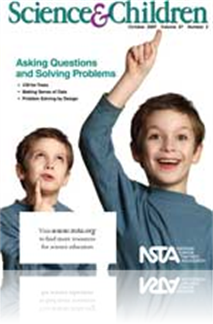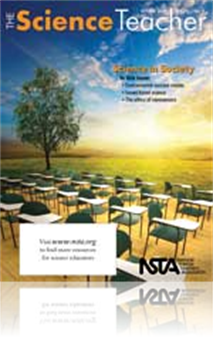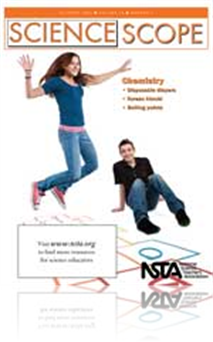All Resources
Journal Article
Today’s Authors, Tomorrow’s Scientists
Although not all teachers can invite scientists into classrooms on a regular basis, they can invite them into their students’ worlds through literature. Here the author shares how she used the nonfiction selection, Science to the Rescue (Markle 199...
Journal Article
Commentary: Why Societal Issues Belong in Science Class
Young people face a future filled with important issues that should be informed by science—such as climate change, genetic manipulation, and the management of pandemics. To meet these challenges, students need an understanding of scientific concept...
Journal Article
Scope on Safety: Science storage requirements
Middle school science teachers need to address two issues concerning storage. First, if it is insufficient, they need to work with administrators to secure additional storage area(s). Second, whether sufficient or not, good housekeeping practices are...





